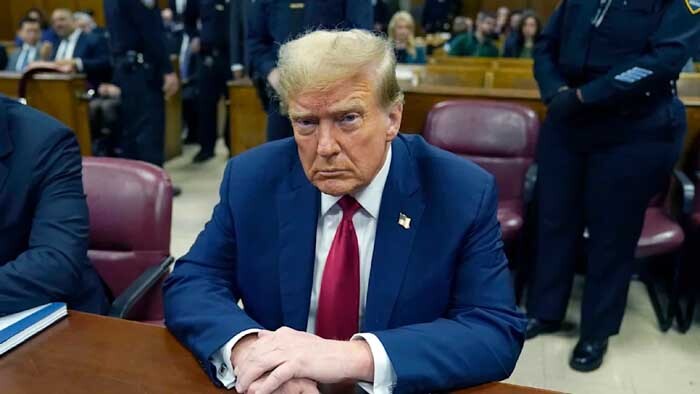Notifications
News Staff![]() Apr 23
637 views
0 Comments
0 Likes
0 Reviews
Judge Juan Merchan
Former President Donald Trump
Todd Blanche
Hush-money trial
Matthew Colangelo
Apr 23
637 views
0 Comments
0 Likes
0 Reviews
Judge Juan Merchan
Former President Donald Trump
Todd Blanche
Hush-money trial
Matthew Colangelo

DLNews Law & Order:
The boundaries between political maneuvering and legal constraints dissolve in the weighty courtroom saga surrounding former President Donald Trump. Trump's ongoing trial, which centers around allegations of hush money payments, is marked by a theatrical ambiance that transcends the courtroom and permeates public discourse. As the legal proceedings unfold, Trump leverages his platform, transforming legal jeopardy into a political spectacle of significant magnitude.
The drama heightened during a special hearing to determine Trump's compliance with a gag order. Here, Judge Juan Merchan reviewed evidence provided by prosecutors, who documented ten instances of Trump's critical social media posts about the court and potential witnesses. The request from prosecutors for a $3,000 fine for contempt and a warning of possible jail time underscored Trump's perceived impunity.
Trump's response to these legal challenges is characteristically theatrical. Before the hearing, he issued a dramatic appeal to his MAGA supporters, cryptically titled "My farewell message," in which he played up the possibility of imprisonment—though actual incarceration remains a remote possibility. This message not only rallies his base but also casts him as a martyr battling a biased system, reinforcing his narrative of being an outsider persecuted by the establishment.
The defense, led by Todd Blanche, deflects the severity of the accusations by normalizing the behavior attributed to Trump. Blanche’s argument that influencing elections through under-the-table payments is "democracy" attempts to minimize the legal implications by contextualizing them within the rough-and-tumble of political strategy. Furthermore, the defense frames secretive motives as private rather than politically manipulative, underscoring a common defense tactic in high-profile cases: redefining the narrative.
Prosecutor Matthew Colangelo sharply countered this narrative, describing the hush money as part of a deliberate criminal conspiracy intended to manipulate the 2016 election outcome. This characterization seeks to strip away the political veneer and refocus on the legal violations.
In the courtroom, the tension is thick. The judge's exasperation with Trump's defense—labeling Blanche’s arguments as lacking in credibility—mirrors the difficulties in managing a trial under the spotlight of intense public scrutiny and involving a defendant who is no stranger to controversy. This dynamic further underscores the unique leniency the legal system sometimes extends to individuals of significant influence and resources, adding to the situation's intensity.
This situation raises crucial questions about the fairness of justice. Trump’s actions, which could have led to severe legal consequences for a less influential individual, appear to be met with a degree of judicial leniency, suggesting that power and status can influence the course of justice. As the trial progresses, it not only determines Trump's legal fate but also acts as a barometer for the American judicial system’s impartiality and integrity, a matter of profound concern.
Trump’s lawyer's argument about an unfair trial almost immediately caused the judge to lose his temper. However, Judge Merchan quickly dismissed the argument as "stupid." He raised his voice and declared, "You have presented nothing here! You lose all credibility in this court," when Blanche failed to provide any evidence to support his argument. The judge did not rule immediately but postponed his decision regarding Trump's possible violations.

Share this page with your family and friends.